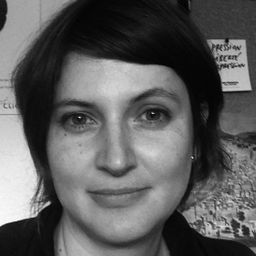
Dr Adriana Diaconu
Sessions in which Dr Adriana Diaconu participates
Saturday 4 June, 2016
Sessions in which Dr Adriana Diaconu attends
Friday 3 June, 2016
Avant de s’appeler le Vieux-Montréal, la vieille ville était le cœur vivant de Montréal habité par l’ensemble de ses classes sociales : riches et pauvres, artisans et hommes politiques, ouvrières et propriétaires fonciers, esclaves et notaires, juges et débardeurs… Le quartier Bonsecours au nord du marché a gardé plus longtemps que tout autre une fonction résidentielle et la présence d’une population de condition modeste. Le circuit explore les commerces, les écoles, les usines, les rues et l...
Welcome addresses and cocktail, followed by the Concordia Signature Event "The Garden of the Grey Nuns". As the opening ceremony and cocktail take place in the former Grey Nuns' Motherhouse, recycled into campus residence and reading rooms by Concordia University, delegates will also have the possibility to discover the video Three Grey Nuns (3 minutes, by Ron Rudin and Phil Lichti. Three Grey Nuns recount their memories of communal life in the Grey Nun’s Motherhouse. Built...
Saturday 4 June, 2016
What if we changed our views on heritage? And if heritage has already changed? While, on the global scene, states maintain their leading role in the mobilization of social and territorial histories, on the local scale, regions, neighbourhoods and parishes have changed. Citizens and communities too: they latch on to heritage to express an unprecedented range of belongings that no law seems to be able to take measures to contain, often to the discontent of...
Le 19e siècle aura été celui de l’invention européenne des monuments, historiques et de nature. Le 20e, plus spécifiquement sans sa seconde moitié, aura été celui du patrimoine, en particulier dans sa version mondiale, telle que soutenue par les États-Unis des années 1970. Or, en ce début de 21e siècle, de nouvelles formes de mobilisations mémorielles émergent: de la rue Champlain de Québec au quartier Xintiandi de Shanghai, de Bercy-Village à Paris à South Bank de Londres, ou bien encore aux...
Most of what we experience as heritage emerges into conscious recognition through a complex mixture of political and ideological filters, including nationalism. In these processes, through a variety of devices (museums, scholarly research, consumer reproduction, etc.), dualistic classifications articulate a powerful hierarchy of value and significance. In particular, the tangible-intangible pair, given legitimacy by such international bodies as UNESCO, reproduces a selective ordering of cul...
Sunday 5 June, 2016
"What does heritage change?" is a multifaceted question to which the answer(s) are in primary respects related to real-life negotiations among different groups of citizens, cultures, races, ethnic groups, sexual identities, and social classes about received, official and/or widely accepted or accomodated intangible attributes, cultural traditions, historic monuments, buildings, and other transmitted or revived historical legacies. Heritage designated by and for whom, for what motivations, an...
Monday 6 June, 2016
Le patrimoine fait aujourd’hui l’objet d’attentions autant que d’agressions et de destructions. Cela peut s’expliquer par les difficultés de son identification ou de sa conservation. Cela peut plus profondément s’expliquer parce que, dès le départ, il célébre un événement ou conserve une mémoire qui peut être ou devenir une source de dissenssions et de conflits politiques. Enfin, sa reconnaissance suscite des gains économiques pour les uns mais des pertes pour les autres. Mais peut-être...
Tuesday 7 June, 2016
An experiment in moving memory, this live event bridges public and academic space to re-imagine knowledge exchange, creation and impact. Around the globe the planning of large-scale memorial-museum projects concerned with violent histories are frequently marred by conflict, omission, and competitions of victimhood. This problem also extends to scholarship on genocide and memory. “Moving Memory: difficult histories in dialogue” is a collaborative multi-sited research exhibiti...









